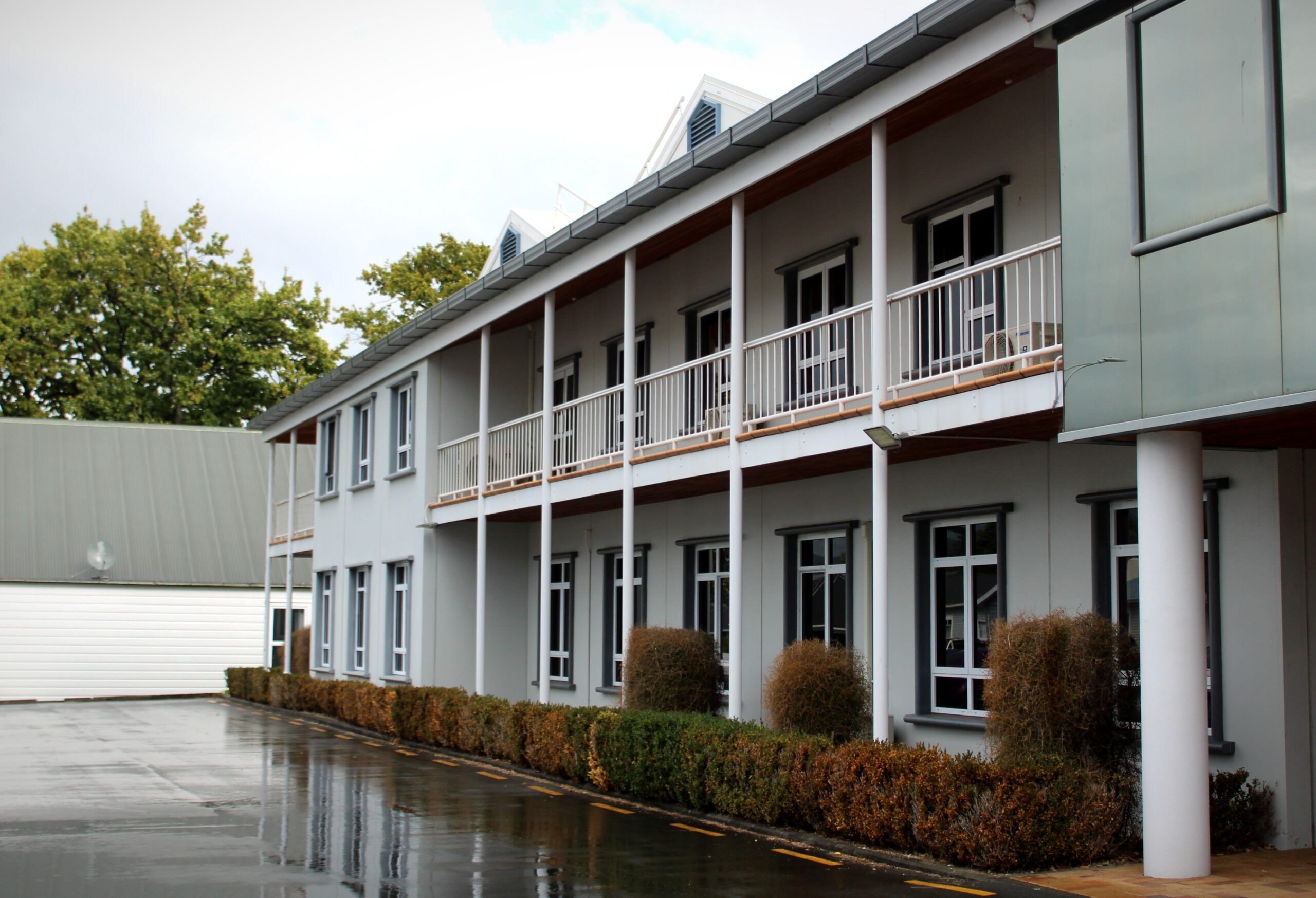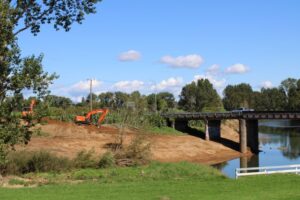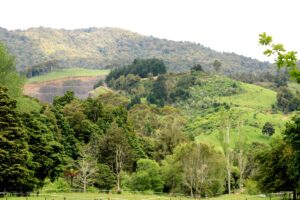Broadcasters, former journos, and media backers now make up one-third of the new Thames-Coromandel council – one of them as Deputy Mayor. It’s a crossover that could reshape how the council communicates. KELLEY TANTAU reports
A former editor, a ‘local news’ broadcaster, a financial backer of a community newspaper, and the owner of a popular radio station will all be seated around the Thames-Coromandel council table for the next three years – one of them as Deputy Mayor.
It’s a mix of media and politics rarely seen within one chamber, but it could bring “clearer, more accessible council communications”.
With the final local body election results now out, it’s been determined that former Hauraki-Coromandel Post editor Alison Smith; The Coromandel Informer newspaper shareholder Flemming Rasmussen; Coromandel’s CFM ‘local news’ host John Freer; and CFM radio station owner John Grant have been successful in their bids to become councillors.
Grant was also named new Mayor Peter Revell’s deputy – a decision Revell said was based on his “tremendous work ethic, sound judgement, and keen eye on the bottom line”.
Mayor Revell, who led the nearest candidate by 600 votes, said the “unique” situation in TCDC – the fact that three people with current interests in media organisations, plus a fourth who was a former journalist and was now in the communications space – seemed “an unusual coincidence”.
He told The Profile that community members from “all walks of life” were drawn to public service, and should be celebrated and their experience utilised.
For second-term councillor John Grant, who now picks up the Deputy Mayor title, a passion for the community was what drove his decision to first stand for council in 2022.
He and his wife Lynda are the owners of popular radio station Coromandel’s CFM, but as a director, he said his involvement was limited to managing financial aspects and providing occasional technical support, such as driving the station’s caravan for live broadcasts.
As a member of the Media Council and subject to the Broadcast Standards Authority, The Profile asked Cr Grant how he would manage any potential conflicts between his responsibilities as Deputy Mayor and his ownership of a local media outlet that reported on council and community issues.
Cr Grant said he was committed to transparency and maintaining public trust.
“To manage potential conflicts between my role as Deputy Mayor and my ownership of CFM, I maintain no involvement in editorial decisions, which are handled by CFM’s independent news team,” he said. “Additionally, CFM adheres to strict editorial guidelines to ensure impartiality, and I am committed to transparency through annual declarations of interest and recusal from any business decisions involving council matters.”
He also said that John Freer, the station’s news editor and local news host, would be removed from all council-related reporting following his appointment to council in the South-Eastern ward.
Across the country, it’s uncommon but not unheard of for media personalities to serve on local councils.
In Christchurch, former City councillors Barry Corbett and Sue Wells were both broadcasters before entering into politics in 1998.
Michael Laws, a former MP and Mayor, and most recently the deputy chairman of the Otago Regional Council, is a talkback host on The Platform and has also worked with Radio Pacific, Radio Live, and Sky Television.
Bo Burns, owner of Times Media, publishers of the Eastern Times and Franklin Times, was the highest-ranking candidate for Auckland’s Howick Ward this election.
Closer to home, Cr Grant said his media experience equipped him with “a unique perspective” as both councillor and Deputy Mayor. He said it helped him advocate for clearer, more accessible council communications.
Alison Smith, a former editor and journalist of The Hauraki-Coromandel Post, and now the communications and marketing lead at EnviroStrat, agreed.
“I’ve actually got quite a strength in strategic thinking, and I think it’s from years of going into situations with no preconceived judgements – neutrality, which is what you’re trained in for journalism,” she said. “So, years and years of doing that, plus all the research and reading skills, and the ability to get out and talk to people of all backgrounds, I think that actually sets you up quite well for representing a community in council.”
Cr Smith was named a Voyager Media Awards finalist in 2022 in the Environmental Journalism category for her work exposing a fisheries loophole after thousands of pink maomao were hauled in by fishermen in Tairua.
She will join Cr Freer in the South-Eastern ward, meaning the area will now be represented by two media minds, with Freer also having held senior roles with Independent Newspapers Limited and News Limited.
Mayor Revell expressed confidence that his new team would uphold high ethical standards.
He told The Profile that council had a Media Policy that guided elected members in their contact with the media, stating: ‘elected members can express a personal view in the media at any time but must make it clear it’s their own view’.
Elected members were also barred from voting or taking part in discussion of any matter in which they had a financial interest. Failure to comply with these rules could have serious consequences, including disqualification from office, he said.
“Council’s induction process for new and returning elected members provides our representatives with a thorough grounding in these rules, and we have every confidence they will be followed,” he said.
Incoming councillor Flemming Rasmussen has also committed himself to non-involvement in The Coromandel Informer newspaper’s editorial decision-making while an elected member.
Cr Rasmussen told The Profile that earlier this year, he and his wife “made a conscious decision” to financially support The Coromandel Informer “to ensure its continued long-term availability as an independent, viable local newspaper and publishing business”.
The couple hold a 33.3 per cent shareholder interest, and Cr Rasmussen is a director, but he said he had no day-to-day involvement in the business.
The majority shareholder, Pauline Stewart, was the executive editor of all publications, and had exclusive content and editorial oversight, he said.
Cr Rasmussen – who received the most votes in this year’s local body elections for the Mercury Bay Ward – has written opinion pieces about council operations, published in print and on The Informer’s website since February, 2024.
In them, he talks of rates rises, Maori Wards, and transparency, in one writing: ‘Being elected to public office inherently comes with public scrutiny. This scrutiny is not a burden but a necessary part of democracy. Transparency, openness, and access are not just ideals. They are fundamental pillars of democracy. We must uphold them, as their erosion may further decrease public engagement and trust in local government’.
He said he planned on continuing to contribute pieces in a private capacity, not as a councillor, and The Informer would continue to promote “principles of fairness, accuracy, balance, and transparency in its reporting”.
He said his financial backing of the paper would not affect how council issues were covered, but acknowledged that it could impact how people received that coverage.
“Perception is reality. Fact,” he said. “However, we cannot plan or worry about the ever-changing ‘fickleness’ of public opinion. What we can do is continue to do our best, do the right thing, to the best of our ability.
“In three years, we get to ‘enter the scales of public opinion’ again for the public’s verdict of performance. That’s democracy. We trust the process. Whilst it is imperfect, it is the best we have.”
BY KELLEY TANTAU





